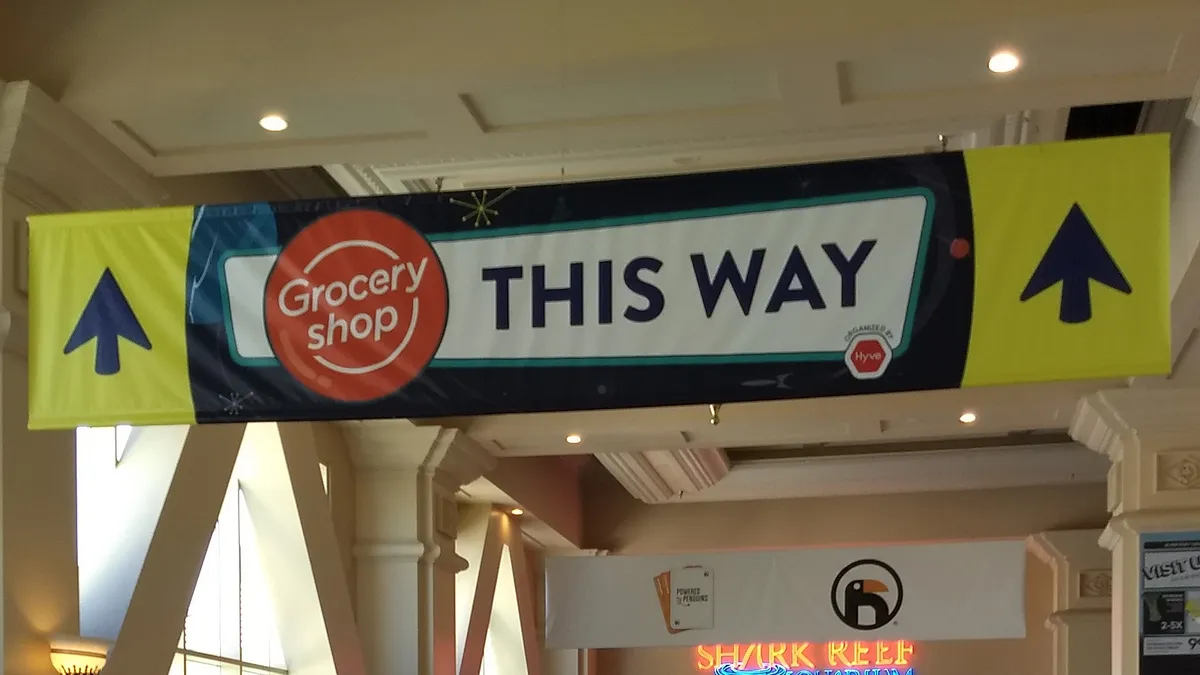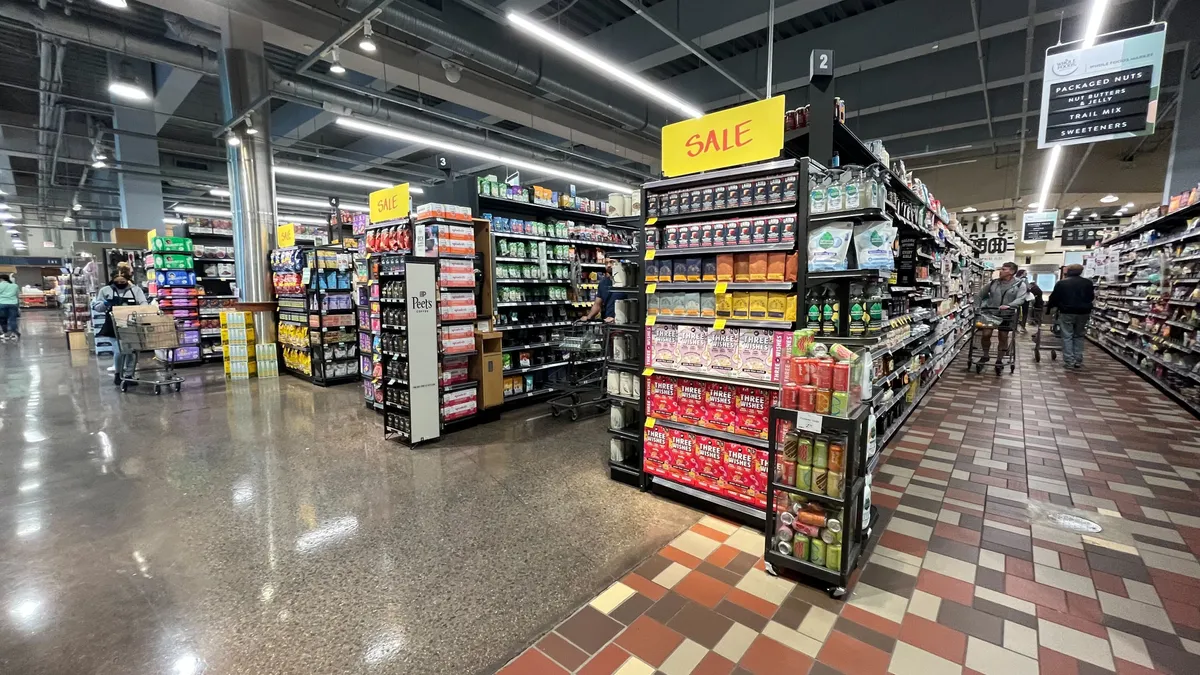Dive Brief:
- Supervalu’s strategy is increasingly focused on its wholesale operations, CEO Mark Gross told attendees at last week’s Goldman Sachs Annual Global Retailing Conference in New York, according to Food Business News.
- With its acquisition of Unified Grocers earlier this year, Gross said Supervalu expects to make about $11 billion in annual sales through wholesaling compared to $5 billion in grocery sales.
- “(Wholesale) is the growth of our business, and the core strength of our business,” Gross said. “I see significant further opportunities for us to grow that business and for us to be a consolidator. Wholesale, more and more, becomes the dominant part of everything that we do.”
Dive Insight:
Since 2012, Supervalu has reduced its retail store count from 1,500 to 220, mostly through the sale of its Save-A-Lot discount chain to private equity firm Onex Corp last year. In that same period, Supervalu has significantly grown its wholesale footprint, acquiring specialty distributors like Unified Grocers, which it secured this spring for $345 million.
These decisions are looking very smart in an increasingly competitive retail industry. In its most recent earnings report, net sales for the Supervalu’s wholesale division increased 12.4% over the same period last year — to $2.56 billion — while its retail net sales declined 2.7% — to $1.39 billion and comp store sales declined 4.9%.
As Supervalu expands its wholesale footprint, it's looking to increase its assortment of high-growth fresh and prepared foods, along with natural and organic products. Along with Unified, Supervalu is targeting smaller specialty wholesalers for acquisition, and stands to increase its footprint in the coming years.
The company’s familiarity with the retailing side of the business is helping it win contracts and offer additional services. Most of the grocers Supervalu serves have between five and 50 stores, Gross noted during his Goldman Sachs presentation, and could benefit from Supervalu’s scale and expertise. Jerry’s Foods, a 50-store regional grocer based in Edina, Minnesota, recently announced it will outsource its technology network to Supervalu, according to Supermarket News.
But what does it do with its retail stores? Margins have shrunk as locations have battled deflation and tough competitors in key markets. In Supervalu’s home city of Minnesota, Hy-Vee has moved in on the company’s Cub Foods with several high-performing locations, cutting into the chain’s leading market share. Cub has fought back with store remodels, but with several more Hy-Vees on the horizon, the company will have to fight hard to hold on to customers.
Supervalu officials have said they plan to invest in top-selling stores and close underperforming locations. Earlier this year, the company combined the operations and merchandising staffs of Shoppers Food & Pharmacy and Farm Fresh, two of its flagging brands. In January, Supervalu hired former Target executive Anne Dament as head of retail, merchandising and marketing and put her in charge of improving sales across its retail footprint.
Increasingly, Supervalu sees its stores as tools to help its wholesale operations. Speaking at the RBC 2017 Consumer & Retail Conference in New York earlier this year, president Mark Gross told attendees he sees the company’s retail stores as a “test lab” to improve its wholesaling business.









